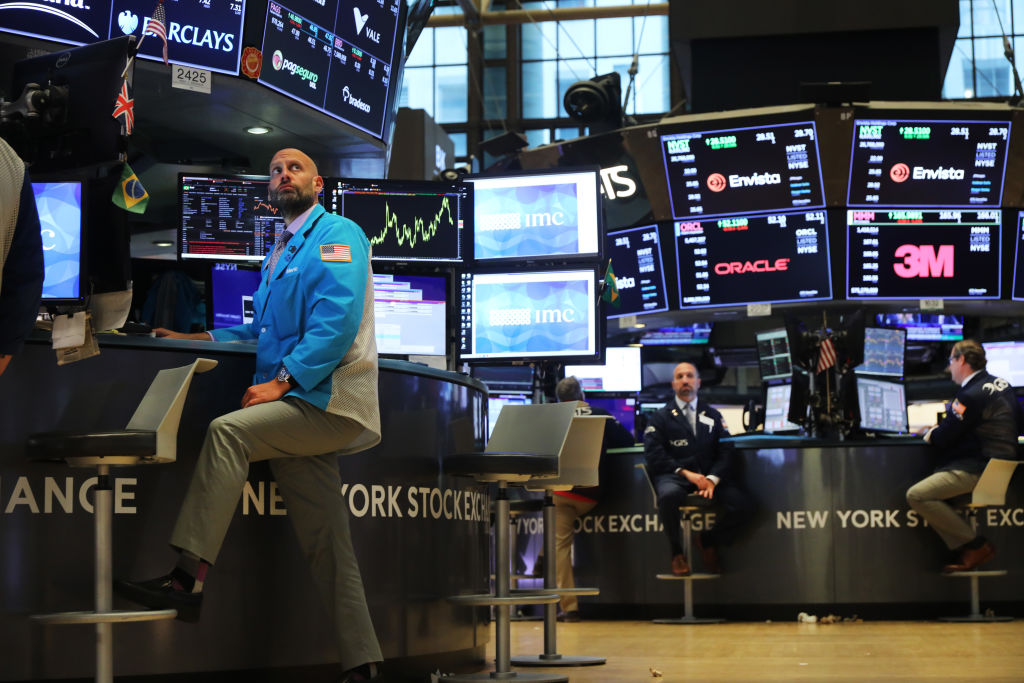Bitcoin traded flat Wednesday morning in Asia below the resistance level of US$26,000. Ether also traded flat, hovering around US$1,600. Wednesday’s U.S. spot Ether exchange-traded fund (ETF) application by asset manager Ark Invest is yet to have an effect on the token’s price. Other top 10 non-stablecoin cryptocurrencies traded mixed. Solana led the losers, while Toncoin posted the most gains. U.S. stock futures edged lower. That followed a slide Wednesday on Wall Street as stronger-than-expected U.S. economic data raised investor concern about inflation and interest rate hikes.
Bitcoin, Ether tread water amid regulatory uncertainty
Bitcoin dipped 0.05% in the last 24 hours to US$25,764.75 as of 07:20 a.m. in Hong Kong, according to CoinMarketCap data. The world’s largest cryptocurrency has been largely range bound between US$25,500 and US$26,000 since last Friday.
“This coldness continues in cryptocurrency market trading amid low traders’ sentiment, with continued uncertainty about the future of the regulatory environment for this market, especially in the United States,” Samer Hasn, market analyst for online brokerage XS.com, said in an emailed comment.
Hasn highlighted the delayed decisions by the U.S. Securities and Exchange Commission (SEC) on Bitcoin-backed ETF applications from a number of major financial institutions, including global investment firm BlackRock. The lack of regulatory clarity has, he said, contributed to decreasing risk appetite among investors.
After Bitcoin lost the key support level of US$26,000 on Sept. 1, US$25,300 could be the new “invisible hand” propping up the token’s price, said Markus Thielen, head of research & strategy at digital asset service platform Matrixport, in an emailed comment.
Bitcoin fell to US$25,362.61 on Sept. 1, its lowest level since June 16. Thielen said he can see “significant” price volatility continuing as macroeconomic pressures, such as rising U.S. bond yields and dollar prices, amplify risk sentiment.
Meanwhile, a U.S. regulatory body voted Wednesday in favor of a new accounting standard for crypto assets. The Financial Accounting Standards Board (FASB) will require crypto businesses to use “fair value” accounting from 2025. That means that, at least once a year, they will have to evaluate the current value of their crypto assets separately from other assets they hold.
The move is considered a win for crypto businesses who view fair value accounting as a more accurate way to assess their financial health. Bitcoin rose to a high of US$25,953.02 in the immediate aftermath of the vote before falling back.
Ether has lost 4.22% over the past seven days. It traded flat at US$1,632.60 for the past 24 hours, posting no gains despite news that Cathie Wood’s Ark Invest has filed for its first spot Ether ETF in the U.S. Spot Bitcoin ETF applications have boosted Bitcoin’s price in the past, but there was no such bounce for Ether as market enthusiasm for ETF applications wears off.
“There’s been so much regulatory controversy about a Bitcoin spot ETF that I guess many people thought it was a step too far — but we don’t,” Wood told Bloomberg in a Thursday report.
Ark Invest made the Ether ETF application in partnership with fellow asset manager 21Shares. Ophelia Snyder, co-founder of 21Shares, said in a comment posted to X that Ethereum markets are becoming more established.
Other top 10 non-stablecoin cryptocurrencies traded mixed over the past 24 hours. Solana led the losers with a 3.28% drop over the past 24 hours to US$19.62, falling 6.04% for the week.
Toncoin, the native token of the decentralized network TON (The Open Network), led the winners. It rose 2.67% to US$1.82 for a weekly gain of 5.81%. TON Foundation, the group behind TON, was officially registered as a non-profit organization in Switzerland on Wednesday.
The total crypto market capitalization inched down 0.01% to US$1.04 trillion. Trading volume rose 7.97% to US$27.04 billion.
US PMI beats expectations, raising rate hike concerns

U.S. stock futures were trading lower as of 10:10 a.m. in Asia. All three major U.S. indexes closed lower on Wednesday, with the Nasdaq dipping 1.06%. All the main stock indexes across Asia logged losses.
The drop in global equity markets followed Wednesday’s release of the U.S. services purchasing managers’ index (PMI) for August. The index rose from 52.7 in July to 54.5, beating analysts’ expectation of a drop to 52.5.
U.S. Federal Reserve Chair Jerome Powell said in July that the central bank will take a “data-dependent” approach when deciding how to reduce the country’s annual inflation below its long-term target of 2%. That followed the Fed’s decision to raise the interest rate to between 5.25% and 5.50% — the highest level in the past 22 years.
Quincy Krosby, chief global strategist at U.S.-based wealth management firm LPL Financial, told Bloomberg that the rise in the PMI index “underscores the resilience of the largest portion of the economy” and is “certainly not good news for a data-dependent Fed.”
Despite the hot PMI data, the Federal Reserve Bank of Chicago said in a Wednesday newsletter that the positive effects of monetary tightening policies on the economy were yet to be felt. Fed actions to date are “sufficient to bring inflation back near the Fed’s target by the middle of 2024 while avoiding a recession,” the Chicago Fed letter said.
Those statements “will come as good news to those predicting a ‘soft landing’ for the US economy,” Mohamed A. El-Erian, an advisor to Germany-based financial services firm Allianz, tweeted on Thursday. Although, he added, some aspects of the Chicago Fed’s analysis “are bound to be questioned.”
The Fed will meet on Sept. 20 to make its next move on interest rates. The CME FedWatch Tool predicts a 93% chance the central bank will maintain the current rate unchanged in September. It also gives a 43.5% chance for another 25-basis-point rate hike in November, up from 41.3% on Wednesday.
A series of speeches by Fed officials Thursday will provide further indication of their plan for rates.
Meanwhile in China, Beijing will release August import and export data later on Thursday. Analysts polled by Reuters said they expect more declines in August but at a slower pace. They estimated a 9.2% annual drop in exports and a 9.0% drop in imports after double-digit slides in July.
(Updates with equity section.)





